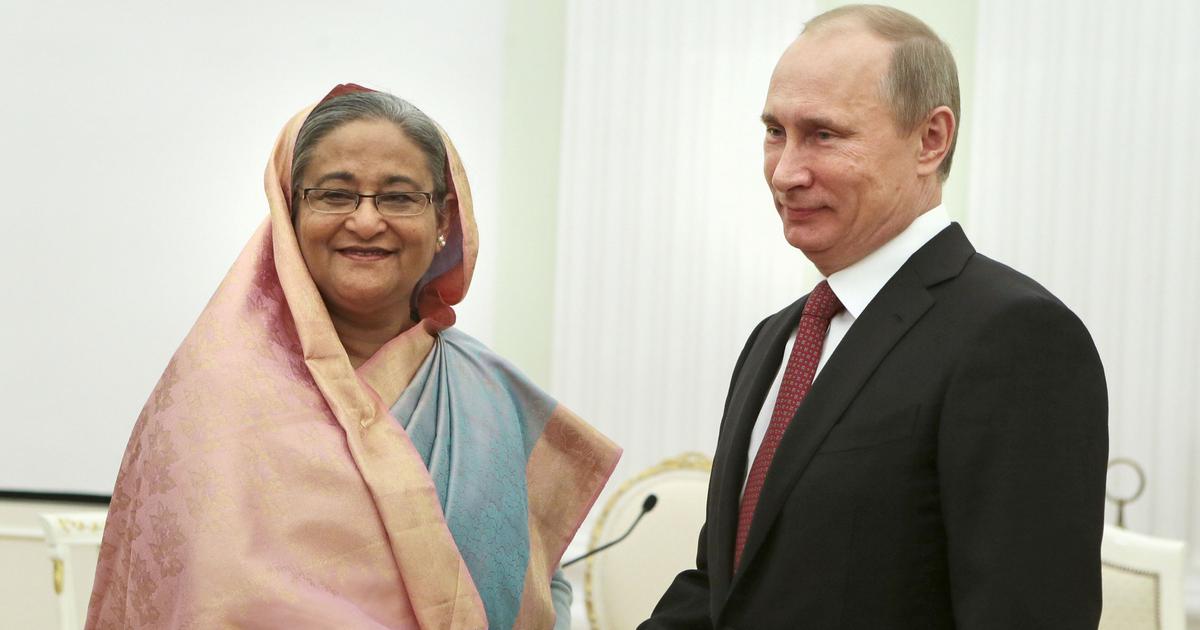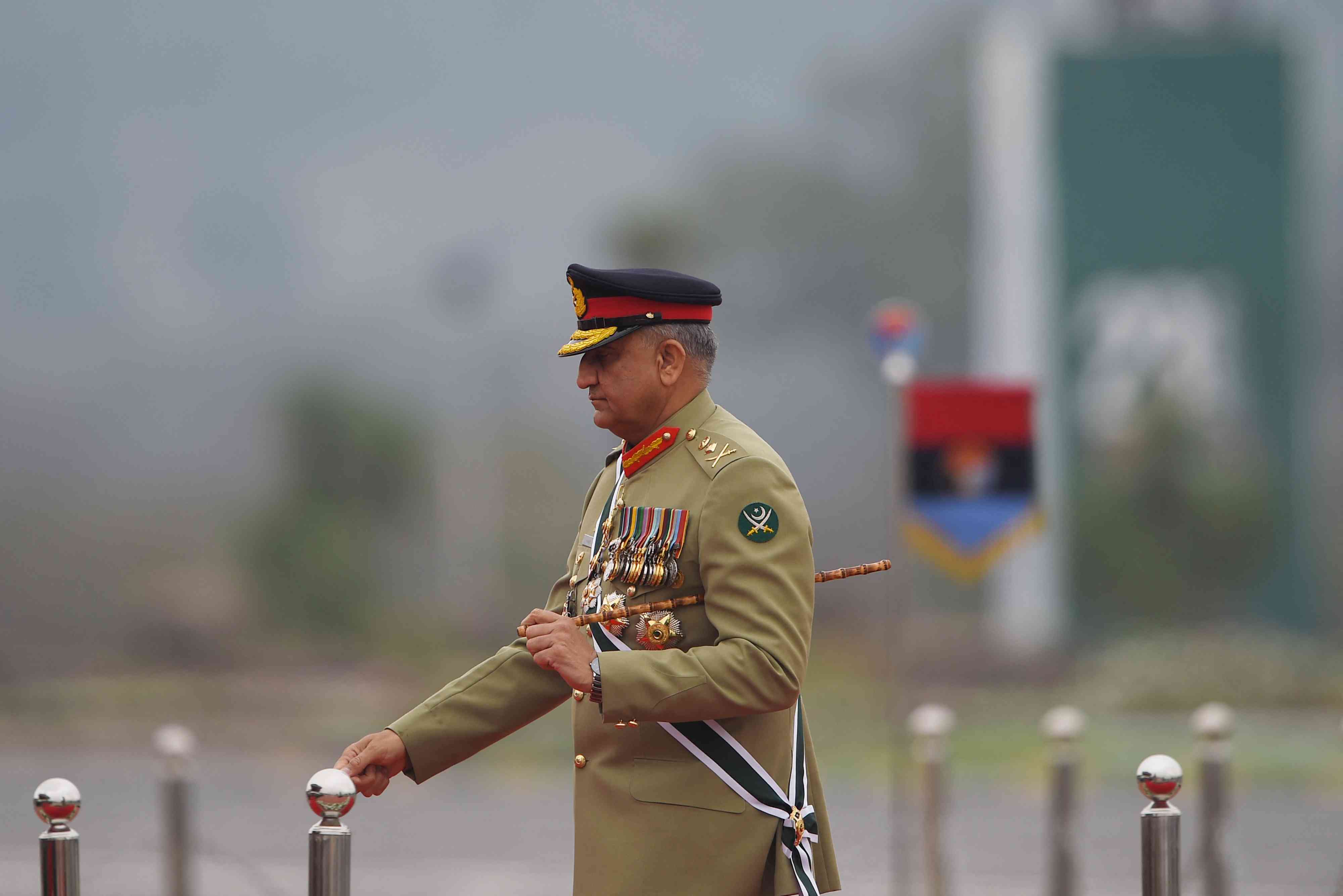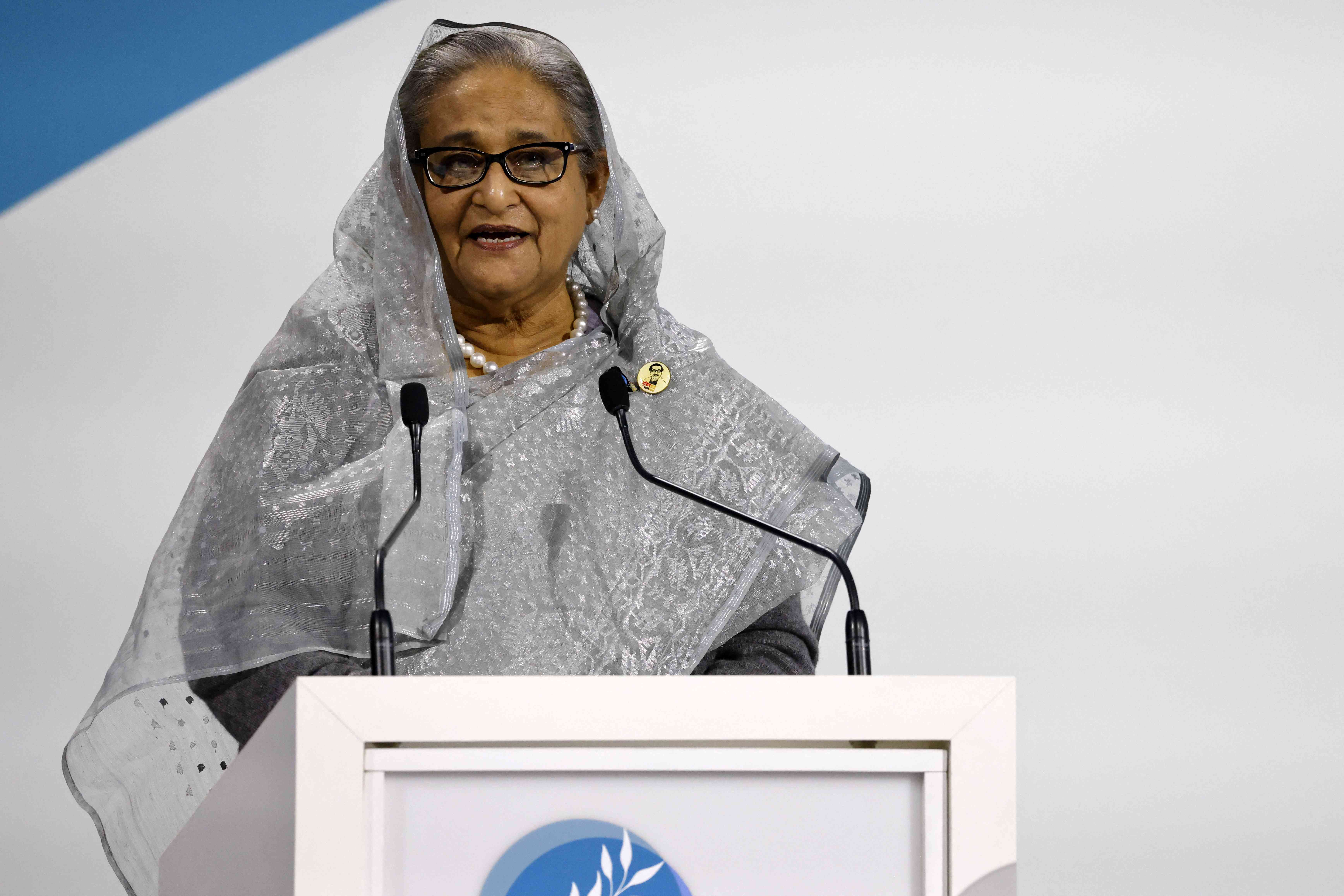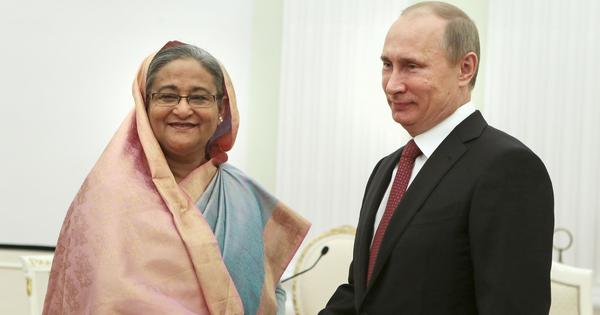Black_cats
ELITE MEMBER

- Joined
- Dec 31, 2010
- Messages
- 10,031
- Reaction score
- -5
The great game in India’s backyard: How Pakistan, Bangladesh are balancing Washington and Moscow
The strategies employed by Bangladesh and Pakistan bear consequences for India too.
Nachiket DeuskarYesterday · 06:30 am

Pakistan on February 8 skipped multilateral talks hosted by Russia on Afghanistan’s security situation. While officially, it was in objection to India’s participation, experts pointed to the fact that Pakistan’s move was more of a snub to Moscow.
This is in sharp contrast to Islamabad’s attempts before this of enhancing relations with Russia, particularly with an eye on importing cheaper oil. Experts suggest this change is to ensure Islamabad does not upset the United States, which influences global lending agencies bailing out the economic crisis-stricken nation. Bangladesh too is playing the delicate balancing game – drawing benefits and avoiding antagonising the two powers simultaneously.
While not connected directly to India, these manoeuvres in its backyard will also have consequences for Delhi’s foreign policy, which is itself navigating between Washington and Moscow.
Khan’s manoeuvres
Pakistan has tried enhancing relations with Russia over the past year, especially with an eye on importing discounted Russian oil. This is crucial for the energy-starved nation amid mounting challenges in importing essential commodities.Historically, Pakistan and Russia’s rival, the United States, are Cold War-era strategic partners. While Pakistani Prime Minister Shehbaz Sharif is seen as adhering to this traditional pro-United States stance, his predecessor, Imran Khan – who left office in April – had inched closer to Russia.
In 2022, Khan became the first Pakistani premier to visit Moscow in 23 years – the timing of which was criticised for coinciding with Russia’s invasion of Ukraine.
Khan, who has repeatedly praised India for resisting American pressure against importing Russian oil, also claimed on Tuesday that he prevented then Pakistani Army chief General Qamar Javed Bajwa’s attempts to force an anti-Russia stance over the war. “Bajwa asked me to condemn Russia’s invasion of Ukraine,” Khan said. “I told him that India, which is a strategic ally of the US, is staying neutral. So, Pakistan should stay neutral.”
In April 2022, as his government collapsed, Khan accused Washington of engineering regime change.

Against this backdrop, Pakistan skipping the Russia-hosted meeting – notwithstanding its official justification that India may push its own agenda at the forum – not only assumes significance, but also adds to recent Pakistani actions of having, in fact, worked against Russian interests.
In recent months, Pakistan has reportedly supplied lethal military hardware to Ukraine. In mid-2022, it also allowed the United Kingdom’s air force – allied with the United States-led North Atlantic Treaty Organization, a military alliance backing Ukraine – to reportedly use Pakistani air bases for airlifting weapons for Kyiv. This places Pakistan among a few non-Western nations supplying lethal military equipment to Ukraine.
In US’ good books
Experts such as Michael Kugelman, director of the Wilson Center’s South Asia Institute, suggestthese recent actions against Russian interests – despite wanting better relations and cheaper oil supplies – stem from Islamabad’s broader desire to not antagonise the West while seeking Washington’s assistance in securing an International Monetary Fund bailout.The United States holds considerable influenceover the financial agency and Pakistan desperately needs funding amid its economic crisis.
Similarly, MK Bhadrakumar, a former Indian diplomat, argued on Saturday that Islamabad “backstabs Russia on US’ prompting”, referring to arms supply to Ukraine.
Husain Haqqani, Pakistan’s former ambassador to the United States, wrote in June that its economic struggles required Islamabad to fix its then-deteriorating ties with the West. “Pakistan’s economic needs, however, dictate that Pakistan should mend fences with the US and its European partners as soon as possible,” Haqqani wrote in ThePrint, highlighting the country’s reliance on Western financial institutions.
Army chief Bajwa in June reportedly sought American help in securing early release of a bailout instalment.
Moscow has, as a result, now grown cautious of Pakistan’s overtures. Denis Alipov, Russia’s Ambassador to India, said on February 6 that Russia is “closely monitoring” Pakistani weapons supplies to Ukraine.
While Russia still hopes to boost cooperation with Pakistan, Alipov sought to alleviate long-standing partner India’s concerns about their closeness potentially posing a challenge. “We will never do anything detrimental to India in our relations to Pakistan,” Alipov said, highlighting that his country’s defence cooperation with Islamabad is specific to counter-terrorism.
Dhaka and Moscow’s continued cooperation
Like Pakistan, Bangladesh is also balancing between the two great powers.A legacy of the USSR’s support for Bangladesh’s 1971 Liberation War, Moscow and Dhaka have shared strong bilateral relations for several decades. Russia remains Bangladesh’s second largest source of military equipment. Bangladesh also relies on Russia to ensure energy security for its growing economy. For example, Russia is assisting Bangladesh build the $12.6 billion Rooppur nuclear power plant.

As a result, Bangladesh wants to avoid alienating Russia. To this end, it has avoided sending food or financial aid to Ukraine over the past year, even though India, also a long-standing Russian partner, has. Dhaka also did not protest a Russian missile, according to Ukraine, striking a Bangladeshi ship docked at a Ukrainian port in March, killing a Bangladeshi sailor.
In contrast, the United States has pressured the current Awami League government on human rights. In December, several former and current leaders of the Rapid Action Battalion were sanctioned by the United States. The RAB is an elite Bangladesh paramilitary unit alleged to have carried out enforced disappearances and extrajudicial killings on behalf the the government.
In the same month, in a shock move, the American Ambassador Peter Haas met families of victims of alleged enforced disappearance under Prime Minister Sheikh Hasina’s rule. This included the family of Sajedul Islam Sumon, a leader from the opposition Bangladesh Nationalist Party.
Expectedly, Russia came to Hasina’s aid, slamming the United States for allegedly meddling in Bangladesh’s domestic politics.
On Wednesday, Derek Chollet, the United States’ State Department Counselor, warned that democratic backsliding will limit American cooperation and nudged Hasina to ensure free and fair elections.
Kugelman suggests this is Dhaka’s way of balancing the two powers. “Yes, Dhaka is keen to ensure relations with Moscow, and yes, it is not afraid to signal its unhappiness about what it believes to be US meddling in its politics,” Kugelman told BenarNews. “[But] Hasina’s position on the [Russian] ship reflects the strategic importance that Dhaka attaches to its relations with Washington.”
Such great power balancing in its neighbourhood creates a quagmire for India too. Though Delhi shares cordial ties with Moscow, Russia’s influence in Bangladesh is worrisome due to the blossoming Russian-Chinese partnership. As the region’s preeminent power, India does not want to concede space to China in its neighbourhood even if it means drawing American assistancefor it.

The great game in India’s backyard: How Pakistan, Bangladesh are balancing Washington and Moscow
The strategies employed by Bangladesh and Pakistan bear consequences for India too.






